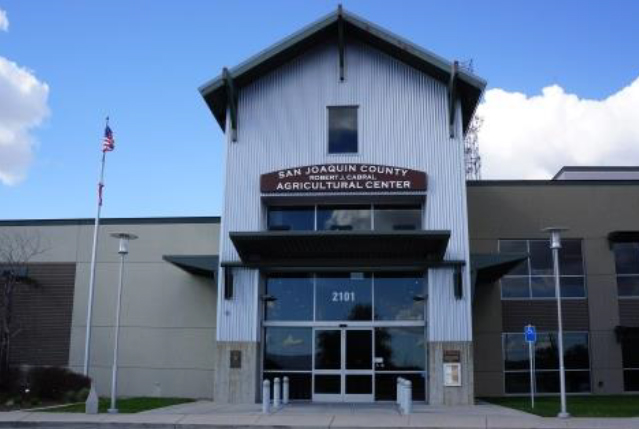
Tim Pelican. A native of Coleville, Wash., Pelican was raised in an Air Force family, spent his formative years in Iowa and graduated from high school in South Dakota. He enlisted in the U.S. Army and, during his three-year enlistment, worked as an operating room technician. He figured he’d go into nursing but, by the time he got out, decided it was not the career for him. He attended South Dakota State University and, in 1983, graduated with a degree in biology, with an emphasis in horticulture. His first position out of college was with a nursery in Huron, S.D. He worked for a few other companies and was self-employed for a time as a landscape designer.
He moved to California in 1997 and worked as a contract forester for Pacific Gas and Electric Co. He later joined the agricultural commissioner’s office in Tuolumne County. Not a big farming county, he got a lot of experience with weights and measures and also worked on gypsy moth control around Sonora Pass, in the High Sierra off Highway 108, and Hetch Hetchy Reservoir in Yosemite.
He left Tuolumne County in 2008, following his boss, former Tuolumne County Ag Commissioner Gary Caseri, to Stanislaus County. “It was a totally different world,” he said. In Stanislaus, he was a deputy agricultural commissioner and managed the pest detection and exclusion, and the fruit and vegetable standards, programs. In 2014, he was hired as commissioner for San Joaquin County.

2101 E. Earhart Avenue
Suite 100
Stockton, CA 95206
p: (209) 953-6000
f: (209) 953-6022
Pelican places a high priority on education programs for growers and farmworkers, and also youth. As an example, he pointed to a recent worker safety training event held by Lodi’s grape growers and commissioner’s office scientists that drew 300-400 laborers. The commissioner’s office has sponsored the Bee Aware Pollinator Protection Symposium and Spray Safe events.
“If we can spend an hour educating, it’s better than a violation.”
The office also sponsors a program called AgVenture, which teaches children about the agricultural industry. Each year, about 11,000 third-graders participate.
The commissioner’s office is also embracing technology. San Joaquin was a pilot county for the California Pesticide Enforcement Activities Tracking System (CalPEATS), which allows agricultural commissioners to log pesticide inspections, incidents, violations and enforcement responses electronically. The commissioner’s office also maintains a webpage, Facebook page, and Twitter account.
Big pesticide issues facing the county? Ag/urban interface conflicts figure prominently. San Joaquin County is heavily agricultural–about 3,580 farms cover 787,000 acres and raise everything from asparagus and cherries, to livestock, peppers, potatoes, tomatoes and wine grapes, and many things in between. San Joaquin also has a number of fast-growing suburban communities–like Escalon, Lodi, Manteca, Ripon, Stockton and Tracy–pushing farther into former farmland.
